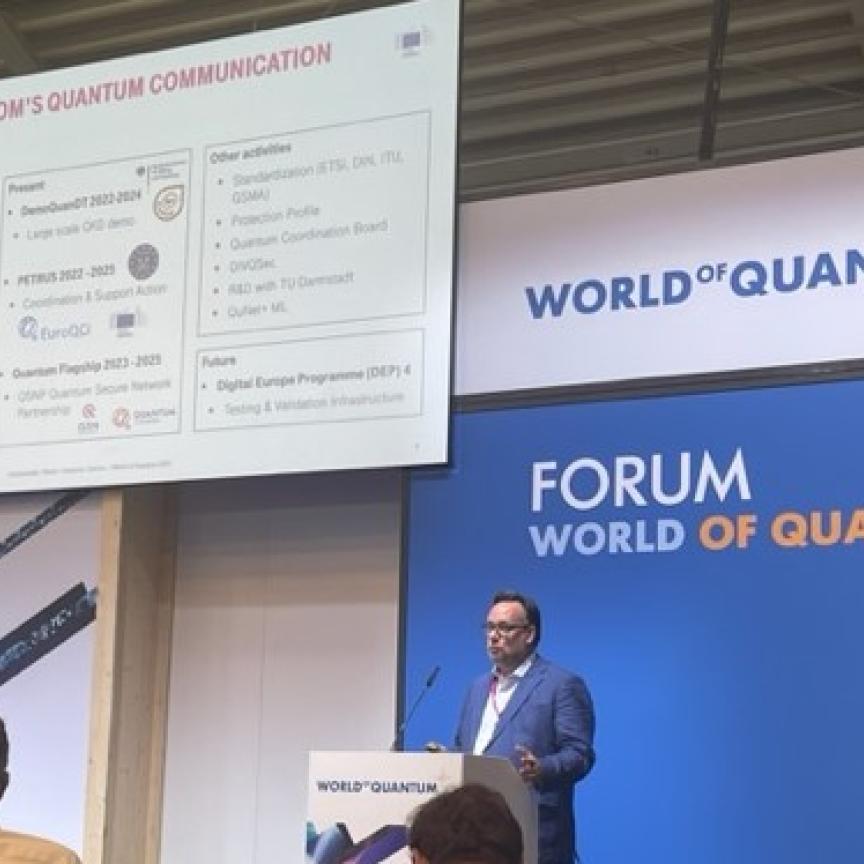A company that has turned fibre optic cable into an ultra-sensitive microphone has been nominated for a prestigious engineering award.
OptaSense joins Cobalt Light Systems, an SME using cutting-edge materials science to fight terrorism; and Rolls-Royce, the engineering giant behind the world's first vertical take-off system for a supersonic fighter jet, as a contender for in the Royal Academy of Engineering MacRobert Award, the UK's longest running national prize for engineering. It identifies outstanding innovation with proven commercial promise and tangible societal benefit.
OptaSense has developed technology that can turn any existing fibre-optic cable into a highly sensitive real-time microphone. With millions of miles of fibre optic cable underground and undersea around the world, the ability to turn this into a 'listening device' has enormous potential in terms of security monitoring and other applications. It is already being used to improve the safety of hydraulic fracturing ('fracking'), for example, and to save the lives of soldiers deployed in hostile environments.
The company says the technology is sensitive enough to detect footsteps, vehicles, digging, or even a helicopter passing overhead, the technology is already being used as a means of advanced security monitoring for perimeters and assets, such as in the military where it is saving soldiers' lives, and in the oil and gas industry where it can prevent illegal 'hot-tapping' of oil pipelines and precisely detect and locate leaks, saving millions of pounds per incident.
OptaSense's technology is also being used by the rail industry. By utilising existing trackside fibre optic cabling, the technology can save lives by detecting people on the tracks, rock-fall or trees on the line, and can also prevent copper theft. Over the coming years, the data provided by the system could also help to keep passengers more readily up to date on the timeliness of services.
The company say the acoustic monitoring system could even replace current traffic monitoring systems as a significantly cheaper alternative. By listening to traffic behaviours through existing roadside fibre optic cables, the system can pick up on traffic incidents, congestion, and even identify and precisely locate potholes.
OptaSense's core technology exploits a phenomenon caused when light is sent down a fibre optic cable, which is known as Rayleigh Backscattering. Noise or vibrations near the fibre changes the Rayleigh backscattering and, by measuring this change, the original sound signal can be recreated. OptaSense combines this with highly advanced algorithms to analyse the motions it detects and translate it into immediately useful data.
Magnus McEwen-King, managing director of OptaSense, said: 'We are extremely pleased to be nominated as a finalist for such a prestigiousengineering innovation award. The technical team at OptaSense have pioneered the development of distributed acoustic sensing and are recognised as world leaders in this field. We firmly believe this British technology will become the Earth's nervous system, protecting the majority of the global energy and transport arteries, ensuring a safer and more efficient movement of people and product around the world.'

